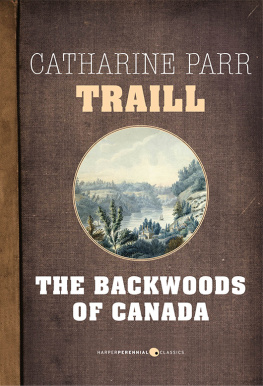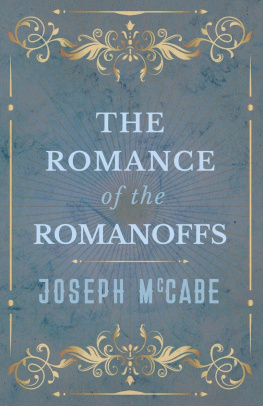MANNERS, CUSTOMS AND DOMESTIC LIFE UNDER THE FIRST ROMANOFFS.

Russias Misery.Rescue by a Prince and a Serf.Rise of the Romanoffs.Michael Feodorovitsch, the first Romanoff Tzar.The Patriarch Philaret Romanoff, the Bane of Russia.Origin of the Romanoffs.Commencement of the Romanoff Tyranny.A Heretic Romanoff.The Tzar Alexis Michaylovitch, the Enlightened.The Romanoff System of Favorites.Tzarina and Doctor.Marriage Customs of the Tzars.Alexis Michaylovitch and Natalia Nary- schkiua.Feodor Alexejevitch.Ivan Alexejevitch, the Feeble.Sophia Alexejevina, the Ambitious, and her favorite, Galitzin.Peter Alexejevitch, the Great.His Creations and Innovations.Customs and Habits of His Epoch.The Old and the New Times, a Masquerade.A Wedding of Dwarfs.Peter the Great and the Clergy.The Papal Marriage.Election of a New Pope by Besotted Cardinals.Domestic Life in Old Russia.Oriental Seclusion of Women.Their Emancipation.Ancient Marriage Ceremonies.Enforced Marriages.The Rod as a Dowry.Assemblies.Something About Drinking.A Little Chapter on Immoralities.A Comedy.
BLACK clouds overhung the Muscovite Empire after the terrible end of the terrible Ivan, after the fall of the false Dmitry. Tumult followed tumult. The cities fell into ruins, the villages became heaps of rubbish, fields and forests wasted into wildernesses. In the upper classes all was dissension, disloyalty and greed; in the lower, slavish fear and fatalistic inactivity. Moscow fell into the hands of the Poles, who cruelly revelled and raged there. They destroyed the Ivremlin-City of wood and stone, the churches and monasteries, profaned the health-bringing relics of the miracle workers, broke open the tombs of the saints and demolished their images. And when the patriarch dared to approach them with words of remonstrance, they dragged him off to prison and left him to perish miserably.
It was a mournful spectacle, and the Russian people longed for the day of their deliverance, longed for the hero who should bring order out of chaos and put an end to the strife.
At last a miracle was wrought. A Prince and a Serf, the Knjas Posharsky and the serf Kosma Minin, united for the rescue of Russia, incited the people to revolt and expelled the invaders. Then the two great Council Chambers assembled, the Bojar Chamber and Provincial Chamber, and the representatives of the whole Empire, Metropolitans, Archbishops, Bishops, Archimandrites and Igumes, Woywods, Bojars, Okolnitchy, Tschaschniky, Stolniky, Kossacks, Streltzi, Elders, Attamans, Gosty and Burghersin short, the best strongest and most intelligent of the people on February 21, 1613, chose Michael Fedorovitch to be their Tzar.
The Romanoffs were descendants of the Kambila, who migrated from Prussia and Lithuania in 1280, and soon gained a prominent position in the Russian Empire. Under Dmitry Donskoi, a Feodor Romanoff was Voyvod, and by the marriage of his daughter to the Prince of Tver, he became allied to the house of Rurik. Anastasia Romanovna, the first wife of Ivan the Terrible, was the mother of the Tzar Feodor, the last sovereign of the house of Rurik. Feodor Nikititsch Romanoff was the father of Michael, who was born the 12th of July 1596.
On the 19th of April, 1613, the old Kremlin-City, after her long sufferings, saw once more a happy day. Bright and beneficent was the spring-time sun that ushered in the first Romanoffs, bringing to the Empire the promise of peace and prosperity. The streets put on their gayest dress, the people shouted for joy. A few days before his entrance into the capital city the young Tzar had subscribed an act binding himself to protect religion, to hold the welfare of the people above all personal considerations, to leave the old laws unchanged and to make no new ones, to determine all weighty questions, not according to his own judgment, but by the laws of the land, to engage in no war and to conclude no peace without the consent of the Council Chambers, and for the avoidance of dissension, to transfer to other hands his private domains, or to make them over to the State as the property of the Crown.
Michael was by nature humane and benevolent, not devoid of magnanimity or unwilling to grant to the country and the people the liberty which was their right. He wished, rather, to reign as a constitutional sovereign, than which nothing better can be desired.
But, unhappily for Russia and for himself, he had a fathera father whose ambition knew no bounds. The latter, on becoming patriarch, had changed his burgher name of Feodor for that of Philaret. He soon succeeded in overshadowing his young son, the real Tzar. The patriarchate was as powerful as the throne. On nearly every document the name of Philaret appeared beside that of Michael. He not only took a share in all political matters, but put out ukases in his own name, to which as patriarch he had no title, and which even Michael would not have dared to do without the consent of the Council Chambers.
Philaret reigned in the Empire as absolutely as on his own domains, which he gradually enlarged and caused to be respected by the pious as church property, although they were in truth his own private benefices.
Thus arose the Romanoff despotism, the autocracy of the Tzars.
And the people, the good, unsuspecting people, knew nothing. The oaths which Michael had sworn on ascending the throne were forgotten; no one reminded him of them. Ere yet its loss was discovered the promised freedom was gone. The Romanoff era, so auspiciously begun, grew darker year by year. The laws had not brought to the people freedom and action, they had been transformed into shapeless knotty scourges, which subverted all free life, which stifled thought and feeling. Trade and intercourse were restricted; moral and physical distress were hermetically sealed up in a frozen silence.
And when Philaret at last, was no more, Michael continued to walk in the path which his father had pointed out. The Tzar who had ascended the throne with pledges to reign constitutionally, the liberal Tzar, was become an unbending autocrat. The Tzar is all, and all is his. Not only the people, not only the country. No, all products of the soil, all work of the hands, the air, the water and the light, are his.
Does the Tzar want workmen? He winks. And lo! out of all corners of the Empire, out of pathless space, out of the Asiatic wastes, from Siberian deserts, from the southern Steppes, from the fruit provinces of the West, they pour forth, slaves to work for their master, by day and night, and night and day, in winter and in summer, in the icy frost, under the burning sun, they come to work for him, unrequited. Unrequited, for the monarch pays no hire. Rejoice, wretched mortal that the great, the noble Tzar permits you to do and to suffer for him.













